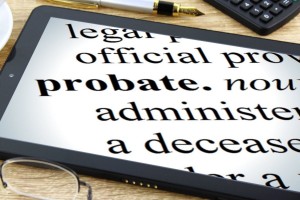Probate law is an extremely complex area of the law to navigate, and it is always best to contact an experienced probate attorney to help with all probate-related issues. Probate is essentially the accounting of the assets that the recently deceased owned at time of death. It can also include anything that the recently deceased had an ownership interest in. Before the deceased’s assets can be distributed to the intended parties, the probate process must first commence. The Probate Code of North Dakota can be found here.
The first step is deciding if the deceased had a will or not, or was testate or intestate in legal terms. If the deceased did have a will, then the asset distribution will proceed as the will proscribed it. If the deceased did not have a will and died intestate, then North Dakota law will decide how to distribute the assets. In the case of intestate estates, a probate attorney will be extremely helpful.
Opening Probate
If the deceased died with a will, then the personal representative that he or she appointed will have to petition the court in order to open the probate process. In this case, the step is simple. If the deceased died without a will, then a qualified person can open the probate process by volunteering to be the personal representative of the estate.
Court Appointment of Personal Representative
In almost every case, if the deceased died with a will, then the court will affirm who they named as the personal representative of the estate. In all cases, the court has to appoint someone to watch over the whole probate process. If the person died without a will, the court may have appoint someone if no one has volunteered.
Dealing with the Assets
The personal representative’s first order of business is taking inventory of the assets. He or she needs to compile a list of all assets, and define their exact location and identity. The personal representative must also make sure that all of the deceased’s assets are secure. Next, once all the assets have been locked down and identified, the personal representative must place a value on most of them. Sometimes a professional appraiser is hired to place values on the assets.
Creditors
All creditors must be notified. This can be done either personally or publicly through some sort of publication like a newspaper. Then, the personal representative must look at all the claims that have been submitted by relevant creditors. If claims are outstanding, then the deceased’s assets are used to pay them.
The Rest
If the will is contested, then the personal representative has the duty to defend it. If it is contested, then the probate process comes to a stop until the issue is resolved in court. This is because the probate process depends on the outcome of the contest. Also, before probate can conclude, all the relevant federal and state taxes must be paid. Finally, once the probate process has concluded, the leftover assets are distributed to the relevant heirs and beneficiaries.
The North Dakota probate attorneys at O’Keeffe O’Brien Lyson Attorneys are experienced attorneys who know how to properly and effectively guide you through the probate process. Call 701-235-8000 or 877-235-8002 today!
Image courtesy of Nick Youngson




